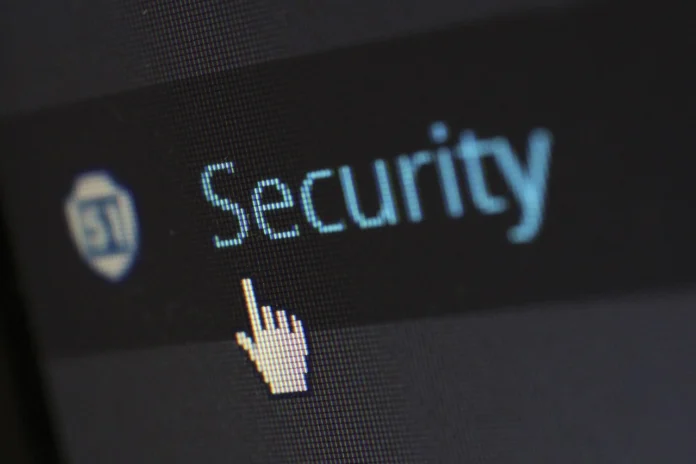Running a business in the digital age means balancing incredible opportunities with ever-present risks, especially the threat of cyberattacks. Ransomware is a particularly menacing form of cyberattack that can infiltrate your systems and lock down critical data. It demands a hefty ransom for release, paralyzing operations and eroding customer trust.
Shockingly, nearly half of organizations targeted by such attacks are forced to pay, highlighting the dire consequences of inadequate cybersecurity. The fallout from these breaches goes beyond financial loss, often damaging reputations and compromising sensitive information.
To safeguard your business and ensure its resilience in the face of these challenges, adopting proactive security measures is no longer optional but necessary. Discover six powerful strategies to strengthen your online defenses and keep your business secure.
1. Enable Multi-Factor Authentication (MFA)
Passwords alone cannot fully safeguard your accounts. Multi-factor authentication (MFA) adds an essential layer of security to your accounts. Even if a hacker gains access to your password, MFA prevents them from entering unless they complete a secondary verification step.
According to the CISA, not all MFAs are equally secure. Phishing-resistant MFAs are the gold standard in the industry, but any MFA is better than none at all.
You can enable MFA on email, banking tools, and file-sharing platforms. It generally combines something you know (a password) with something you have (a verification code). App-based authenticators are more secure than text message codes. Implementing MFA greatly reduces unauthorized access risks.
2. Use a Virtual Mailbox for Secure Communication
Imagine you’re a small business owner running an online store from home in the US. Protecting your personal security while maintaining a professional way to manage business correspondence can be challenging. That’s where a virtual mailbox in USA comes in. This service safeguards your privacy by keeping your home address off the public domain and enhances mail management with added security.
According to The Farm Soho, many virtual mailbox providers enhance convenience by offering encrypted portals for viewing mail online. They also provide secure forwarding options for safe delivery and the ability to archive or shred documents upon request.
With a virtual mailbox, you can manage your correspondence digitally and protect sensitive information. It also provides the peace of mind that comes with a professional and secure mail-handling solution.
3. Provide Cybersecurity Best Practices Training for Your Employees
Human error stands as one of the leading cybersecurity risks. Research from Harvard Business Review shows that it is responsible for over 80% of security breaches. Employees can unknowingly click on phishing links or mishandle sensitive information. Regular training sessions ensure everyone understands online security basics.
Topics should include spotting phishing emails, creating strong passwords, and securely handling files. The FCC also recommends installing firewalls, controlling physical access, securing the office WiFi network, and backing up all important data as additional safety measures. Updating training periodically ensures employees stay prepared for emerging threats.
4. Invest in Secure Hosting and Website Encryption
Your website represents your business and serves as a gateway to your data. Without secure hosting, you leave yourself vulnerable to potential cyberattacks that could compromise everything. In fact, according to IBM, the average cost of a data breach soared to a staggering $4.88 million in 2024.
To avoid such a costly disaster, choosing hosting providers prioritizing robust security measures is crucial. Look for those offering encrypted data storage, advanced firewalls, and other top-tier protections to ensure your website remains safe and your business stays secure.
Installing an SSL/TLS certificate is crucial. It encrypts the data exchanged between your website and its users, ensuring security. This safeguards sensitive information and enhances your site’s trustworthiness. Many hosting providers bundle these certificates with their plans.
5. Use a Password Manager
Weak or reused passwords are a significant security vulnerability. But there is a limit to how many different passwords a person can remember and how complicated they can make them. Password managers help create and safely store strong, unique passwords for each account. They also autofill credentials securely, reducing manual errors.
A password manager guarantees that each account has a distinct, secure password. This minimizes the risk of password-related breaches. Always pair a password manager with MFA for an extra layer of security.
6. Keep Software and Systems Updated Regularly
Older software frequently has security flaws that hackers can take advantage of. Regular updates fix these issues and ensure your systems remain secure. Update operating systems, plugins, antivirus tools, and any software used in daily operations.
Automating updates is an effective way to stay protected without manual intervention. This ensures your business’s defenses are always up-to-date. Keeping systems current helps you stay ahead of potential threats.
FAQs
Why is online security important for businesses?
Online security protects vital business and customer data from cyber threats like hacking and phishing. A breach can lead to financial losses, damage to reputation, and possible legal repercussions. Proactive measures ensure data safety, customer trust, and compliance with regulations, ultimately supporting business growth and sustainability.
How does a virtual mailbox improve security?
A virtual mailbox protects your physical address from exposure online. It securely handles correspondence, reducing the risk of sensitive mail being intercepted or misused. Many providers offer encrypted access and digital management, keeping your business communication private and organized.
What is the most effective way to protect passwords?
The most effective approach is to use a password manager to generate and securely store strong, unique passwords. Pair this with multi-factor authentication for extra security. Avoid reusing passwords and regularly update them to stay protected from potential breaches or cyberattacks targeting weak credentials.
Overall, online security is a continuous effort demanding constant awareness and proactive measures. Implementing these six measures helps protect your business from cyber risks. A secure website, trained employees, and tools like a virtual mailbox are essential components of a strong defense.



































